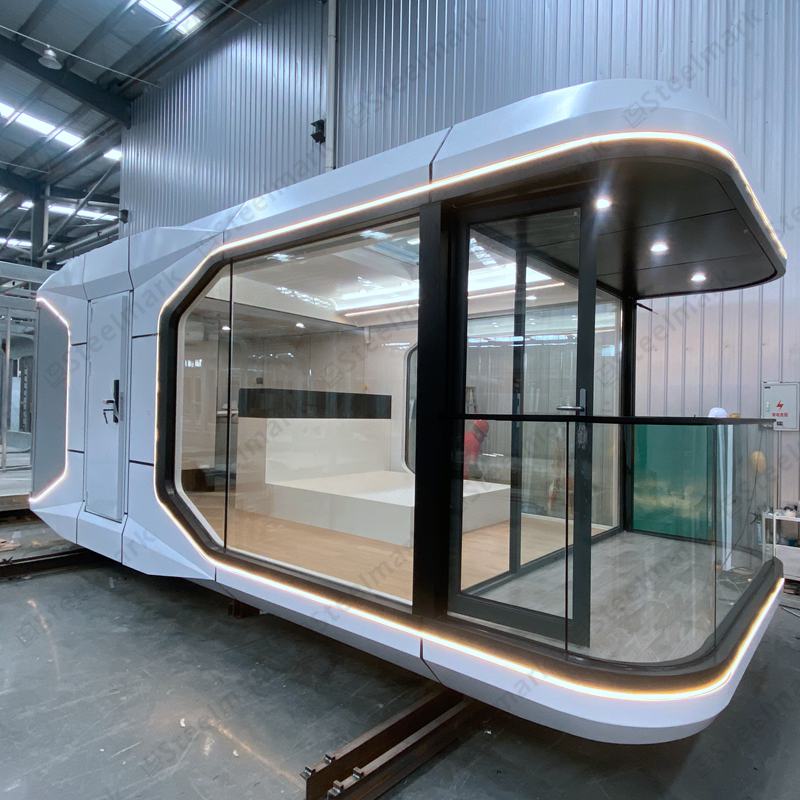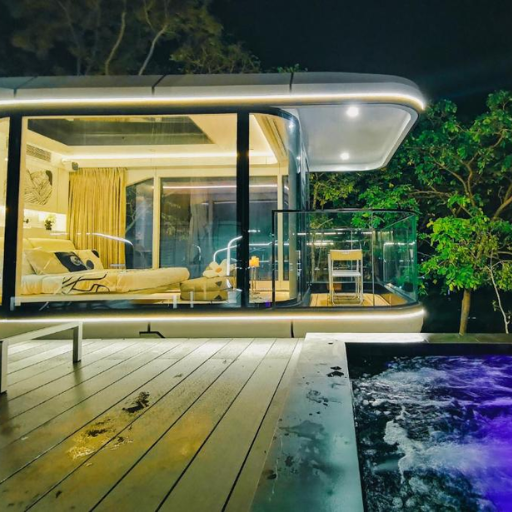Embrace the Future of Housing with Hohabitats Modular Home Designs
Why Modular Houses Are the Future of Lasting Living
Modular homes are significantly recognized as an essential solution for lasting living, providing a blend of performance, cost-effectiveness, and ecological advantages. The versatility of modular layouts allows for the combination of lasting modern technologies and products customized to specific needs.
Ecological Advantages of Modular Houses
The environmental advantages of modular homes stand for a substantial action toward sustainable living. These homes are constructed in controlled manufacturing facility settings, which considerably decreases waste generated throughout the structure process. By optimizing materials and decreasing excess, modular building adds to an extra effective usage of sources contrasted to traditional structure approaches.
Additionally, modular homes are commonly developed with energy performance in mind. Many incorporate innovative insulation techniques, energy-efficient windows, and sustainable materials, adding to reduced power consumption. This can cause reduced greenhouse gas discharges over the life expectancy of the home, improving its overall environmental profile.
The ability to transportation and put together modular elements on-site likewise minimizes the carbon footprint associated with building logistics. Moreover, numerous modular homes are built to be adaptable and easily upgradeable, enabling property owners to carry out sustainable technologies, such as photovoltaic panels and energy-efficient heater, with time.
Ultimately, the ecological advantages of modular homes not just promote lasting living but likewise motivate an even more accountable strategy to housing development, straightening with global efforts to fight climate modification and maintain natural resources for future generations.
Cost-Effectiveness and Price
Building a home commonly stands for one of the biggest financial investments individuals make in their life time, and modular homes offer an engaging solution for those seeking cost-effectiveness and cost. Among the main benefits of modular homes is their reduced construction expenses compared to conventional site-built homes. The structured production procedure enables for considerable financial savings on labor and products, which converts to reduce costs for customers.
In addition, modular homes commonly have shorter building timelines. This not just minimizes costs connected to funding and insurance however likewise minimizes the risks related to rising cost of living and varying market problems. Several customers locate that modular homes can be customized to fit their spending plans without giving up high quality or style.
In addition, energy efficiency is frequently built right into the layout of modular homes, causing lowered energy bills gradually. Numerous producers prioritize sustainable products and methods, even more enhancing the long-lasting economic feasibility of these homes. In general, the combination of preliminary cost financial savings, rapid construction, and continuous power effectiveness makes modular homes an eye-catching option for those looking to buy sustainable living without breaking the financial institution.
Performance in Building And Construction
Modular homes not only supply monetary benefits yet additionally master building and construction performance. The modular structure procedure includes the synchronised construction of modules in a factory setup while site prep work occurs concurrently. This parallel technique significantly minimizes the overall timeline from conception to conclusion, often reducing construction time by up to half contrasted to typical techniques.
Furthermore, factory-controlled atmospheres improve quality control. By utilizing precision production strategies, modular homes are constructed to exact specs, minimizing waste and errors. This consistency not only brings about a better item yet also adds to sustainable methods by minimizing product waste throughout building.
In addition, making use of modern technology and index automation in the production process enables quicker assembly and decreased labor expenses. Once the modules are carried to the website, they can be efficiently set up, even more accelerating the timeline. This streamlined procedure is not only useful for building contractors yet likewise minimizes disruptions to the surrounding environment throughout building and construction.
Personalization and Style Versatility
An outstanding selection of personalization options distinguishes modular homes, allowing home owners to customize their home to fulfill certain requirements and choices. This design versatility is a hallmark of modular construction, making it possible for customers to select everything from layout and area designs to fixtures and surfaces. Unlike conventional homes, modular layouts assist in a joint method where architects and building contractors function closely with home owners, making sure that each aspect aligns with visual needs and individual way of livings.
Furthermore, modular homes can be quickly reconfigured or broadened, suiting altering family members dynamics or progressing individual tastes. This versatility not only boosts the Get More Info home's functionality however additionally adds to lasting sustainability, as house owners can change their spaces instead of look for new real estate solutions.

Future Trends in Sustainable Housing
Emerging trends in lasting real estate are improving the landscape of residential building, stressing environmentally friendly techniques and ingenious innovations. One considerable pattern is the assimilation of smart home modern technology, which enhances power performance via automated systems that keep an eye on and enhance power consumption. This not just decreases utility prices yet additionally contributes to a lower carbon impact.
Furthermore, using lasting materials is ending up being increasingly typical. Building contractors are deciding for recycled, this article locally sourced, or swiftly sustainable materials, which lessen environmental influence and support local economies. In addition, modular homes are acquiring popularity for their minimized waste during building and construction and their versatility to various terrains and environments.
Another fad is the consolidation of environment-friendly roofs and living walls, which improve air top quality and give all-natural insulation. These attributes additionally advertise biodiversity in metropolitan locations.
Final Thought
In conclusion, modular homes emerge as an essential service for sustainable living, supplying considerable environmental benefits via decreased waste and energy effectiveness. As patterns in lasting housing evolve, modular homes are positioned to play an important role in advertising eco-friendly living practices for future generations.
Structure a home usually represents one of the largest monetary investments individuals make in their lifetime, and modular homes supply a compelling remedy for those seeking cost-effectiveness and affordability. One of the primary advantages of modular homes is their lower construction costs contrasted to traditional site-built homes. On the whole, the mix of preliminary expense savings, rapid construction, and continuous energy efficiency makes modular homes an attractive choice for those looking to invest in lasting living without damaging the bank.
Ultimately, the personalization and style adaptability supplied by modular homes ensure that they are not just frameworks, but customized havens that reflect the special identifications of their residents while advertising sustainable living practices.
